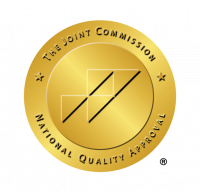People have suffered from alcohol addiction and its consequences since well before the modern age. In the present, at least 14.5 million people in the US aged 12 or older have alcohol use disorder (AUD). This means that several times this number have close friends or family with AUD. It goes without saying that this is one of the largest, most persistent problems we face in our society.
It also tends to be seen as an incurable problem. While there are many approaches that can help someone quit drinking, AUD is commonly seen as a chronic, relapsing condition. A person can go into remission from the issue, but there is always the risk of the problem returning. For this very reason, many people who have been sober for decades continue to identify as alcoholics.
But does this really have to be the case? If you are addicted to alcohol, do you really need to spend the rest of your life struggling with cravings and fighting relapse? Is there a cure for alcoholism?
Below, we’ll look at the facts as they stand, and why, foolproof or not, we’re closer to a cure for AUD than we’ve ever been.
Dr. David Sinclair and the “Extinction” Method

All the way through the mid-20th century, the prevailing wisdom was that there was no permanent cure for alcoholism. Programs such as the 12 steps could help a person stick with sobriety, and there were even medications like disulfiram that could make a person violently ill when they drank, blocking relapse. But it was widely acknowledged that most people in recovery would fight alcohol cravings for the rest of their lives.
Then came the research of Dr. David Sinclair. In a laboratory setting, Dr. Sinclair found that a single dose of an opioid blocker called naltrexone, taken an hour before drinking, could block the endorphin rush from alcohol. For some individuals, this seemed to undermine the “reward” or reinforcement they got from drinking. And something miraculous happened: Over time, their brains began to actually unlearn addiction.1
Dr. Sinclair termed this “pharmacological extinction.” In plain language, taking medication before drinking over a period of weeks or months seemed to rewire people’s brains not to crave alcohol. In essence, their addictions became “extinct.”
“The Cure for Alcoholism”
As research continued, it became clear that Dr. Sinclair’s approach was genuinely useful. It soon became known as the Sinclair Method (or TSM), after its founder. And for many who tried it, the results seemed nothing short of miraculous.
In his book “The Cure For Alcoholism: The Medically Proven Way To Eliminate Alcohol,” Dr. Roy Eskapa went so far as to claim that AUD is in fact curable with the Sinclair Method. Over time one may actually lose interest in alcohol completely, and never wish to drink again. He discusses why TSM seems to succeed where other methods fail:
“It (addiction) takes time and practice to learn. By the time it has taken root, all conventional methods can only attempt to overcome the ever-strengthening addiction—like trying to stop a knee-jerk reflex with willpower— but they cannot remove the cause of the drinking and they prove almost futile in combating alcohol addiction.”
Eskapa goes on to explain how TSM inhibits the pleasurable effects of alcohol. “The person drinks, and endorphins are released … but just bounce off of the receptors that are blocked with naltrexone.” He does note, however, that the treatment is not for everyone: “some people apparently have a different form of alcoholism that does not involve the opioid system and cannot be treated effectively with opioid antagonists.”2
As it currently stands, the Sinclair Method has a 78 percent success rate,3 and is now commonly prescribed in several parts of Europe. Although it has been slow to catch on in the US, it has vocal advocates—including actress Claudia Christian. Her TED Talk on her experience with TSM has done much to raise awareness, and she continues to advocate for this approach through her C Three Foundation.

Schedule a private call with a Ria Health team member and we can help you get started.
Why Isn’t the Sinclair Method More Widely Used?

Although the Sinclair Method is not new, it is still not a mainstream option in the United States. There are several explanations for this.
To begin with, there is a lack of widespread awareness among physicians and their patients. Many doctors still don’t know that TSM is an option, and therefore tend to send their patients towards more traditional rehab or AA.
Other people may fear veering away from traditional and familiar methods that have yielded results in the past. 12 step programs have saved many lives, and those who have succeeded this way may understandably feel defensive of the approach and its principles.
In addition, many people are skeptical about the idea of taking a drug to cure an addiction. And others question the effectiveness of treating physiological addiction without managing underlying emotional or spiritual issues.
Finally, the rehab industry carries a strong influence. Some rehab programs have long established reputations, wide outreach, and offer comprehensive programs—often in beautiful (and expensive) facilities. Wider popularity of TSM could theoretically impact the profitability of these businesses.
Why the Sinclair Method Isn’t Foolproof
As is the case with any tool, the Sinclair Method only works if used properly. Relapses can still occur. Regardless of how long you have been on TSM, there is a catch: You will always need to take your medication if you wish to drink alcohol. If you drink without naltrexone, your brain will experience the rush of endorphins again, and you can return to active alcohol addiction.
Claudia Christian speaks openly about her personal experience with relapsing on the Sinclair Method. She discusses the importance of compliance, being closely supervised by a physician, and other important pieces of the puzzle such as therapy and lifestyle changes.
Christian shared that she was so impressed with the physiological results of naltrexone that she ignored the emotional repair that still needed to be addressed. She stresses that the pill alone is not enough, and that healing also includes working on your mental health.
In other words, while TSM can make recovery easier by removing cravings and drinking urges, in some sense AUD remains a chronic condition. Naltrexone can make it very unlikely you’ll relapse, but it’s still always possible.
So, Is There Actually a Cure for Alcoholism?
Traditional treatments don’t claim to cure AUD, but rather focus on managing the disease long-term through abstinence and ongoing support. And for some people, this is a suitable approach.
The Sinclair Method offers a different solution. It allows you to drink moderately if you prefer to, as long as you continue to take naltrexone. TSM may even lead to loss of interest in alcohol (which can feel like a cure for addiction). However, if you ever drink again without naltrexone, relapse can still occur.
So, although the word “cure” is debatable, TSM coupled with counseling, coaching, and other support may allow you to live your life free of the clutches of alcohol. Even though it isn’t foolproof, the Sinclair Method means a major change in how we treat alcohol addiction. We’ve never been closer to ending this disease.
Ria Health offers online support for the Sinclair Method, and several other forms of medication-based treatment for alcohol addiction. It’s now possible to get the support you need for permanent change from the comfort of home. Learn more about how our program works.




